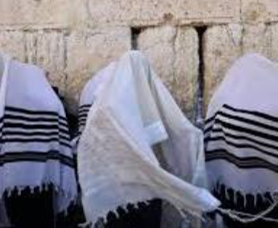Parshas Naso-Shavous
It Feels Good To Be Loved!
“Speak to Aharon and to his sons, saying; This is how you shall bless Bnei Yisroel, saying to them.” (B’midbar 6:23)
Hashem instructed Moshe Rabbeinu to tell Aharon Hakohen to bless the Jewish People, with the well-known brachos known as Birchas Kohanim. The Torah (B’midbar 6:23) says, “Speak to Aharon and to his sons, saying; This is how you shall bless Bnei Yisroel, saying to them.”
Many of the commentaries are troubled by the seemingly extra words of the pasuk, “saying to them”.
Kli Yakar and others say that these words teach us that the chazan should first say each word of the bracha followed by the repetition by the Kohanim. Maskil L’Dovid learns that it teaches us that the kohanim should not rush through the brachos. Rather they should say them wholeheartedly and with concentration.
Rabbeinu Bachya learns a similar thought from the unusual spelling of an extra letter, “vav” in the word, ” אמור”, “saying”. The extra letter “vav” which makes the word longer, is to tell the kohanim that they must not consider blessing the people as a burden to be finished as soon as possible. On the contrary, they should bless the people with all the concentration they are capable of.
The Talmud (Sotah 38a) brings two additional explanations for the seemingly extra word. One is that the kohanim are supposed to say the brachos, facing the congregation, as one who is talking to the other. The other explanation is that it teaches us that the brachos must be recited out loud.
The Dubno Maggid has a different explanation (The Maggid of Dubno & His Parables by Benno Heinemann). He asks two questions. The first question, as we said previously, is why the Torah repeated the words, “You shall say to them”. He also questions why the kohanim turn to face the congregation, rather than face the Aron HaKodesh as is done by the rest of the tefillos. After all, “Doesn’t the Birchas Kohanim symbolize a prayer for Hashem to bless His people? Shouldn’t those who pray to Hashem face the Aron, rather than turn away from it?”
The Dubno Maggid offers a parable to explain his answer:
Once, a father was very angry at his son’s bad conduct. Finally, and with great reluctance, he sent his son away from home. He told him not to expect any help from his family. The son left home. He was unable to find a job. He went hungry and his clothes were wearing out. Winter was approaching and he did not know what to do. He decided to go to a neighbor of his father’s. He asked the neighbor to go to his father on his behalf, to try to get some clothes to keep him warm for the cold weather. The neighbor went to the boy’s father and was happily surprised by the father’s response. The father said that he was planning on going to the neighbor to ask him for a suggestion about how he could get clothes to the son. “Do you really think that you must come to me and ask me to provide for my own son? He is my own flesh and blood. His happiness is as dear to me as my own. It was only because of his conduct that I had to act as if I no longer cared for him.” The father asked the neighbor to speak to his son to try to get him to change his bad ways. Then the father would happily open his arms and welcome his son back home, where he would supply him with all his needs.
The Dubno Maggid continued that this symbolizes our relationship with Hashem. There is no need for the kohain to face Hashem, as an intermediary, and ask Hashem to bless Bnei Yisroel. Bnei Yisroel are Hashem’s beloved children. Hashem always desires to show us loving kindness. It is only because of our sins that we can not always benefit from Hashem’s mercy. That is why the kohanim face the people, with their backs to the Aron. The words of the pasuk, “You shall say to them”, is instructing the kohanim to tell Bnei Yisroel to behave in such a manner to be worthy of receiving all the gifts and blessings from Hashem.
We are so special to Hashem! Hashem wants to constantly shower us with goodness.
At times, our sins block the abundant goodness that Hashem wants to give us.
May we always try our best to act in a manner
worthy of receiving all of Hashem’s gifts and blessings.






